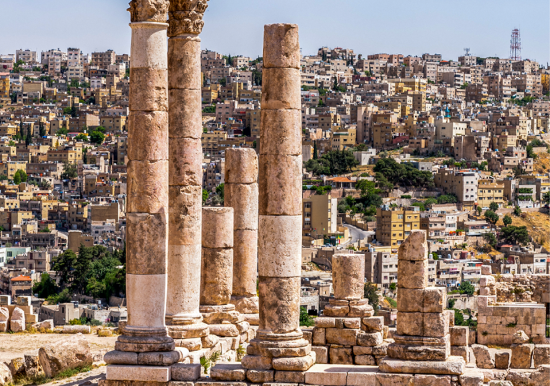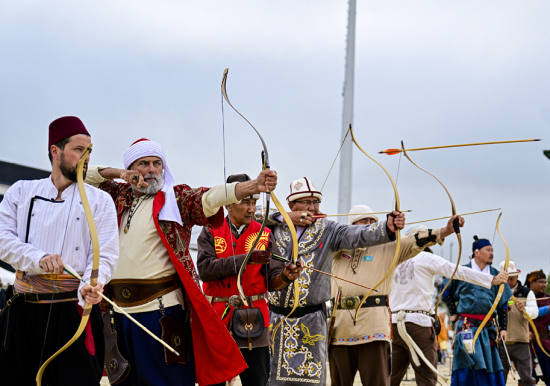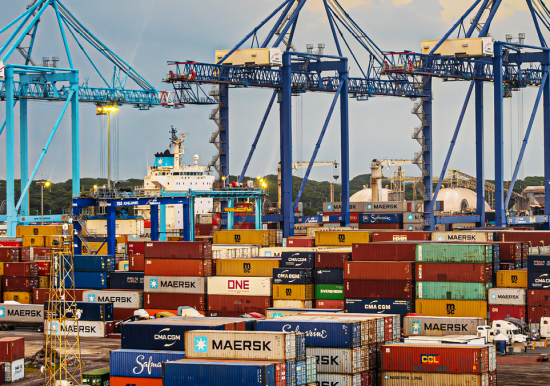
Telling the Chilean Story
Chile ranks 27th in the CGGI rankings for Nation Brand, within the Global Influence & Reputation pillar. Its country branding efforts are led by Fundación Imagen de Chile, a public-private organisation chaired by Chile’s Ministry of Foreign Affairs, whose mission is to promote the country’s image in the world, increasing its brand recognition, reputation, and preference in the international market.
What is Chile’s approach to country branding and what is your role in it?
The concept of a country brand or national brand is a little nebulous. The notion of a brand is itself up to interpretation. This is also the case for Chile. When I first took on this role a year ago, we tried a new approach to what we mean by country branding. We pursued a mixed strategy that combines traditional branding and marketing with public diplomacy.
As a country brand agency, Imagen de Chile tries to tell the world not only what Chile is good at, such as commodities, services, and tourism, but also what we believe in: respect for human rights, gender equality and other values. We engage with the media and put out campaigns. Some of these initiatives have to do with values and others with products and services, or with overall investment attraction.
A country is not only its trade.
Most country brands we know of are overseen by their trade promotion agency. The way they function and the type of projects they take on are very closely linked to trade promotion. Chile’s comprehensive approach to country branding means we can be more flexible about the partners we work with. In the past year, we have strengthened ties with those doing promotions for different industrial sectors, complementing their work with values-based cultural content—because a country is not only its trade. Such content makes it easier to reach and connect with people more widely. Along the way, we tell them we also happen to export billions of dollars of cherries to China. The two aspects of our efforts complement one another.

Although we depend on the government to some extent, we are an independently administered organisation. We report to a board that also has representatives from the private sector, with a more pragmatic view of what we should do with the country brand. So we work with everyone, and we represent everyone’s interests. This is a structure that is particular to Chile, and it is not the same in many other countries. All this has been easy for us to do because Chile has a longstanding tradition of the public and private sector working together. When public and private representatives go abroad, they have done so together as one delegation for many years.
This approach, in which the different sectors know they have to work together as a country, is not new. But in the past year, we have made great strides in working across the sectors, and they now appreciate the work we do to bring everyone together.
What I bring to the table is experience and energy. I have extensive experience in communications, and our work is mainly communications. I think good communication has to do mostly with common sense. In our organisation, I emphasise that we have to work together, and understand what each team is doing so we can collaborate effectively and do things better.
It is the same when we work with external parities, both in the private and public sectors. We make sure we know what they are doing, so when we go to a meeting, we can point out that it is similar to what someone else is doing, and perhaps we can all work together. We play an articulating role, which has now been formalised and accepted by all involved.
Partnership is central to the work you do. What is new or different about the way you approach it?
One thing that distinguishes us is that we have a close relationship with the international media. During COP 28, we oversaw most of the communications for Chile during the conference. Even prior to the event, we engaged with the international press to show how Chile had been making progress with its energy transition. Then we arranged for interviews with the Chilean delegation.
This sort of work is usually managed by a government Ministry. In many other administrations, each institution would want to take the lead for their communications by themselves, and indeed in the past each Ministry would try to work the press with their own individual teams. We work as a single country brand agency that leads this effort, working with different Ministries as well as delegates from the public and private sectors, on behalf of the whole country.
This approach to partnership came out of our collaboration with the Foreign Ministry. We acknowledged that there was a communicational aspect to the work that was not being addressed: not only in terms of engaging with the media, but in terms of overall concept. The gap we keep seeing is that nobody is storytelling; nobody alone has the institutional capacity for storytelling.
The gap we keep seeing is that nobody is storytelling; they do not have the institutional capacity for storytelling.
We have met with a number of Ministries to see and hear what is important to them, and what they are doing in their area of work. They are often so technically focused that they do not have the ability to distil and extract their key messages and then drive them with a press effort, even though they have been developing these messages all along. In building closer relationships with Ministries, we help them see that they have difficulties in communicating effectively. This is where we come in. We approach communications more holistically, from media, press, and collaboration perspectives, which tends to be more effective.
We are not simply saying this approach is effective: they can also see the positive results that emerge. This was not the case in the past and has been key to gaining their trust. The positive outcomes we have brought about have earned us the institutional trust and vote of confidence to be, in a way, Chile’s communication agency.
We have built up a network of over 100 partnerships— this is obviously a challenge for a small team. But we have regular stakeholder meetings, and for our projects we try to weave in as many partners as possible. The common ground is that they are all contributing in some way to the country’s image, either domestically or abroad.

What has been key to strengthening these relationships in the past year is our emphasis on the three brand pillars, that everyone agrees on, and which have become a common language for our discussions. Our partners are co-creators. They do not find out about our strategy through the media or online: they are in the discussion. They have their say, and at the end of the day we do what we can to make communicational sense out of it, while always considering their views and adjusting to fit. It is also important that our partners can see from our results that we are effective; that we are not working for ourselves but for them, since they are all working for Chile.
One challenge is that staff and teams rotate in our partner institutions, and so we have to keep explaining and defining what we do. It is a dance that keeps changing its beat.
What principles and concepts have you found to be effective, both in aligning partnerships and in resonating with audiences abroad?
A better image abroad for Chile is simply pragmatic. Everyone, regardless of the sector they work in, wants that. It is expensive to not have a country image. They have all experienced trying to do business in a world that does not know where they are coming from or has no context for what they do.
A better image abroad is simply pragmatic. It is expensive to not have a country image.
The key is having everyone sit at the table and realise that it is only in working together that we can achieve the best results for the country. We have to place our chips where it is most practical to do so, and with people who know that this work is important. Only after the results have spoken for themselves, in the past year, has it become easier to get other partners on board. Now they call us frequently.
In articulating our country brand and identity, we sought concepts that are useful and relevant to everyone, in terms of what we are already doing well, and also what the country plans to do in future. We identified three conceptual pillars that all sectors felt they could agree with and could apply to their own areas of interest.
- One pillar is Sustainability. This is relevant for instance to tourism, or how we make wine, and in our manufacturing. But it also speaks to what Chile is doing in renewable energy, the environment, and public policy.
- Another pillar is Democracy, which has to do with Chile’s belief in defending human rights and gender equality. And also that we think democracy—including democratic processes and institutions—is how society should function. And it has of course to do with stability. The private sector also agrees that democracy makes Chile a stable country, which is good for business.
- The third pillar is Diversity, which has to do with our multicultural identity and mixed heritage, as well as our respect for different ways of life, different kinds of industry, different tourist attractions. So we have a rich diversity to offer the world.
With these three concepts, we say to everyone: use them in a way that suits you. Everything they do then says the same thing about the country, which is that Chile values sustainability, democracy, and diversity in every way. We try to show how Chile is contributing to the world.
How do you engage with Chileans at large? What impact has the country brand had for them?
We do not try to do things directly for the Chilean public; we have neither the budget nor the capacity for massive campaigns. Instead, we work with and through institutions.
That said, we had a very good experience with the 2023 Pan American Games. We started working with the PanAm Games early, after realising they would be held in Chile. This was not easy, as they are both a large organisation and a transient one. But we know sports is a significant driver of local pride. The international media are also always on the scene.
We worked on media-based projects, ensuring that any media content, such as videos, properly reflect what Chile is about, with accurate depictions of the Chilean people. This effort was both about enhancing national pride and also understanding that this was an international space and opportunity. We got the PanAm Games to agree with our brand pillars, and we featured interviews and other elements that had to do with sustainability, diversity, and democracy. After the Games, we conducted a study that showed Chilean pride had indeed risen. Because we had conducted this survey, and because of the media role we played during the Games, our organisation and work also gained visibility as a result.
Another initiative we have introduced that does go beyond the institutional efforts and major international drives is our brand licensing programme. If you have a legitimate Chilean business, we give you the licence to use the Chilean brandmark on your product. We ask them to show us how they plan to use the brand, because we have to protect it. Otherwise it is inclusive and free to use. In fact, we have had very few instances where the brand has been misused—there is a lot of pride in being allowed to use the brand.
This is an effective way to show that we are all walking the talk. We are all brand image constructors. We also know that when they put the brand on their products, it will reach some 160 countries, so everywhere the products go, the country brand will go. In return, we try to loop the licensees of the brand into our events, so they help generate content. We are also looking to assess how much value brand Chile is adding.
What are some of the main challenges you see ahead in advancing the Chilean country brand?
There are many challenges to not being directly within the government apparatus. Our approach recognises that a country’s image does not belong to just the government. It is not a common format nor an easy format, but it is the most realistic way to approach national branding.
Having objective information and good quality data are vital to building trust.
We have made a great effort to communicate the country as it is, not just a glamorous, pristine façade. It is not necessary. Chile may not be perfect but it is a very good country. We work with real information; we do not make things up. Having objective information and good quality data are vital to building trust. It may not be very costly to do this, but it is costly not to do it.
That said, our biggest challenge is to get our main stakeholders to really understand the importance of country image—that this is an area that needs experience, expertise, and creativity. We need them to put aside their concerns and work with us; to realise we know how to do this and can do it better, because we work on this every day.
We also work with other country brands—to improve our institutional standing, to advance the practice itself, and to gain greater recognition and broader acceptance for this field. We see that others share the same challenge of making our respective countries understand the importance of what we do.
As part of this effort, Chile is the new headquarters for the Ibero-American Country Brand Council (CIMAP). The Council includes authorities and representatives from 18 countries and cities, including ministers, undersecretaries, directors, and technical teams. This Council platform allows members to collaborate more systematically and share our diverse experiences in narratives and storytelling, strategy, and the management of our country brands.


Our recent campaign (https://marcachile. cl/50anos/) illustrates how the work of Imagen de Chile goes beyond trade promotion to incorporate Chile’s unique history and culture.
2023 marked the 50th anniversary of the 1973 coup d’état, which forced many Chileans to flee abroad. The campaign focused on how the coup impacted Chile’s international image, stemming from a new Chilean community that began to form around the globe. This community now comprises 1.2 million compatriots.
At the centre of the campaign are documentary testimonies of Chileans who, for various reasons (political, economic, educational, etc.), pursued their life projects away from Chile. We interviewed Chileans from the diaspora who now live in Sweden, Mexico, and Argentina. They reflected on their identity, how it is to be Chilean from afar, how they have integrated abroad, and how they are still contributing to shaping Chile’s image in these societies daily.
Without focusing on political views, this campaign became a way to talk about Chile’s history and heritage in a different light, highlighting its rich ties to the world. The overall campaign has generated nearly 50 million impressions worldwide.

ROSSANA DRESDNER
Executive Director of Fundación Imagen de Chile
With extensive experience in communication management, corporate affairs, and political communication, Rossana Dresdner has built a career as an advisor to political authorities. She has served as Communications Director for the Chilean Chamber of Deputies, Communications Chief at the Ministry of Cultures, Arts, and Heritage, Communications Advisor to three presidents of the Chilean Chamber of Deputies, and as advisor to the Ministry of Foreign Affairs of Chile for the national and international communications campaign on the implementation of the Chilean Vote Abroad. For over 10 years, she was a press advisor to former President Ricardo Lagos. In 2023, she was appointed Executive Director of the Fundación Imagen de Chile, with responsibility for promoting and positioning Chile’s image abroad.
More Stories


Global Influence & Reputation Country Snapshot: Türkiye

